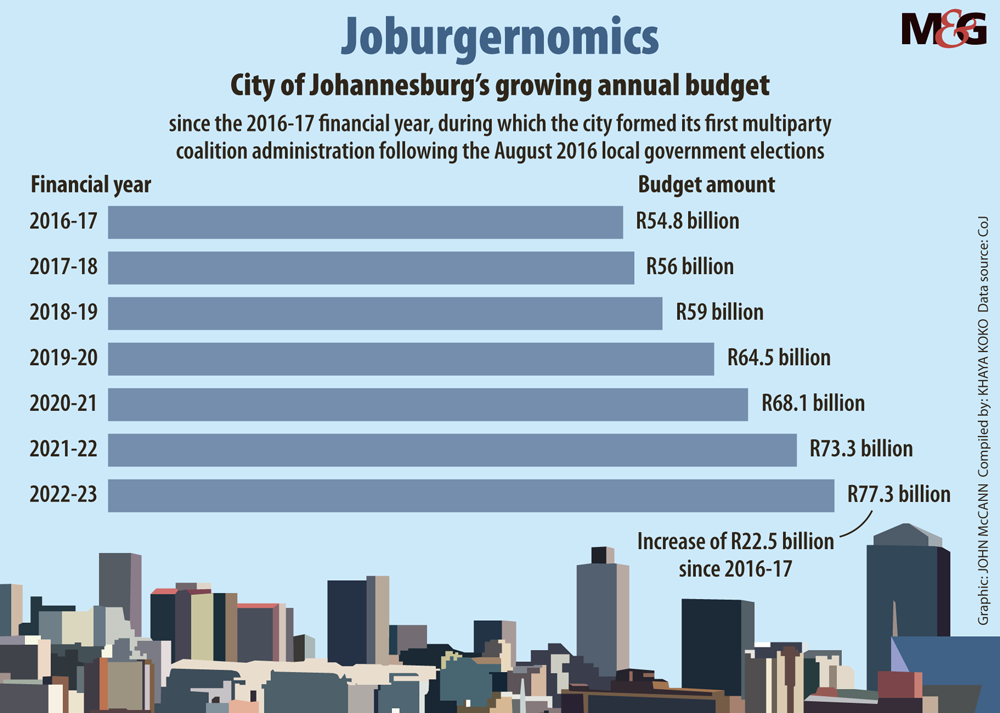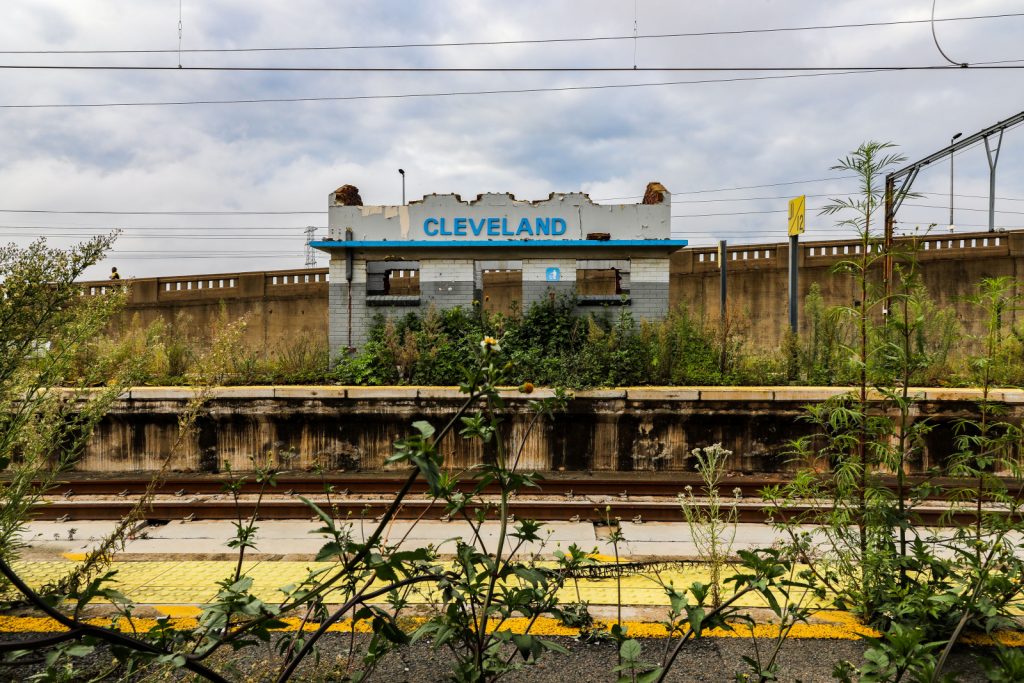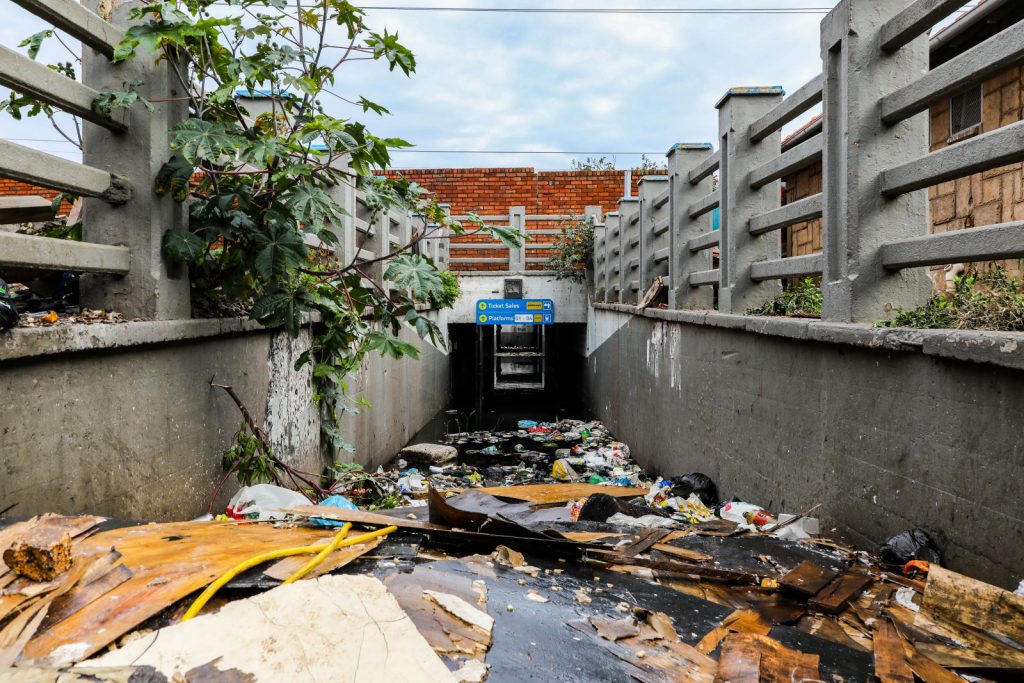All that’s gold may not glitter: Joburg offers no frills or pretentions, but it doesn’t lack authenticity. Photo: Moeletsi Mabe
COMMENT
A few million of us have a sordid love affair with Johannesburg. The relationship is bruising, volatile and — literally — toxic.
Still, we remain loyal to our affections and our city.
This week we decided to ask a difficult question — have people fallen out of love with Joburg? We want to know whether the “for sale” signs that have sprouted out of pristine Parktown lawns mean anything. And do they represent the sentiment of the segments of the population whose cappuccino budget is less than four figures?
The problem is that it’s tricky to articulate the allure of Joburg, let alone interrogate it. Most of us struggle to put into words what this city is or what it represents.
Or why we love it.
Just what is Joburg? We know it is a megalopolis that emerged out of the mines; the smoking Balrog that grew from greedily digging too deep. But gold no longer glitters as it once did — or at least few of us here today deal explicitly in its economy.
Our history is shallow as far as global metropolitans go. At no point did Napoleon wilt in our heat, as he did in Cairo. Scholars did not stop here during their pilgrimage to Timbuktu. Joburg has existed for a little more than a 100 years. The first tent poles went up in about 1886 and it became a municipality in 1898.
Like the rest of the country, we struggle to string together a collective history to be proud of, outside of the political struggle for freedom.
We have no Eiffel Tower, Empire State Building, plateaued mountain or any other world wonder that is universally recognisable and easily silhouetted in a tourism brochure. We have landmarks, sure. Ponte, Hillbrow Tower, Carlton Centre. But it’s hard to imagine any of those being slapped onto the advertising boards at London’s Tottenham Hotspur Stadium.
Tourists use Joburg as a basecamp to jump between the Kruger National Park and Cape Town. Any self-respecting Joburger rightly chastises these heathens and insists they stay in the city for a few more nights. And yet, like a dog chasing a car, we don’t know what to do if we get our way. We could show them a good time over a few days but there is no obvious itinerary to suggest.
Joburg serves no nominal purpose in how our government functions — it hosts none of the three arms of government. And still almost any South African will admit that it is the capital. Not officially … but in practice and purpose; in entertainment and economics. The fact that President Cyril Ramaphosa takes his Zoom meetings in another city is of no importance to anybody.
Followers of bad television — or those of us forced to subsist without a dish in the mid-2000s — will remember an early reality show that saw three contestants plopped on the coast. They had three days to busk, sell ice creams or otherwise finagle R10 000 into as much net profit as possible.

The first move most made was to hop on a plane north, limited finances and funds notwithstanding. Why? Because Joburg is where you go to make things happen. Everybody knows that. We just can’t always elaborate why.
We know Joburg is the financial hub of the country. Possibly of Africa too, depending on who you ask. At the very least, we are continually reminded that Sandton boasts “the richest square mile” on the continent.
That still does nothing to explain matters of the heart. If anything, Joburgers retain a quiet resentment for the ostentation of Sandton. When The Leonardo became the tallest building in Africa in 2019, few of us thought of it as anything other than the tumescent daydream of a nondescript suit. To borrow a phrase from Herman Charles Bosman, there is almost always something sinister about efforts “trying to make Johannesburg respectable”.
In that same year we cringed as Time magazine flew a drone over our dirty secret and showed it to the world on the cover. The thin yet near-impenetrable border between Primrose and Makause is one we all symbolically live with on a daily basis. We begrudge its existence even if we cannot deny we are its product.
Many of us who worked in Rosebank in the mid-2010s like to boast of being the first customers of BGR — the popular burger joint now on the scrubbed-up Keyes Art Mile.
 Things fall apart: The coalitions running the city for seven years have been fractious and service delivery has suffered. Photo: Moletsi Mabe
Things fall apart: The coalitions running the city for seven years have been fractious and service delivery has suffered. Photo: Moletsi Mabe
Then, it was hidden on Jan Smuts Avenue, in the recesses of a petrol station. The location was dark, dank and perfumed by spilt oil and diesel. There was almost no furniture; mostly just a counter and sign above the door. The menu was no-bullshit: double or single cheeseburger; pick your toppings and we’ll see you again when you shamefully stumble in tomorrow.
It was beautiful. The smashed patties were as grimy as the cave they came out of but criminally delicious. That changed when the burgers arrived out of a shiny new storefront just one road up. All the ingredients remained the same; only now they were tainted by the imperial scent of capitalist inevitability.
Right there, between two buns, we finally find the allure of Johannesburg. Our city is at its finest when it offers no frills or pretention. It thrives when it does not hasten to extend an insincere welcoming. We love it because it is authentic.
Henry David Thoreau wrote in his classic work Walden: “Rather than love, than money, than fame, give me truth.” Joburg has always given us truth.
Readers who have got this far might wonder how we arrived at our original question — any creature that could love this place would surely not be perturbed by a few more potholes.
 Wasteland: The City’s budget grew from R54.8 million in the 2016-2017 financial year to R77.3 billion for the current period. Photo: Moeletsi Mabe
Wasteland: The City’s budget grew from R54.8 million in the 2016-2017 financial year to R77.3 billion for the current period. Photo: Moeletsi Mabe
We are in a moment of disillusionment precisely because we have been robbed of the truth. Load-shedding, decaying infrastructure, rising inequality … these are all problems borne of dishonesty. Dishonesty in the form of corruption, political machinations and mismanagement. Those are scourges we’ve always battled with, only now there is a prevailing sense that they have become untenable.
We haven’t fallen out of love with Joburg. We are just really, really pissed off.